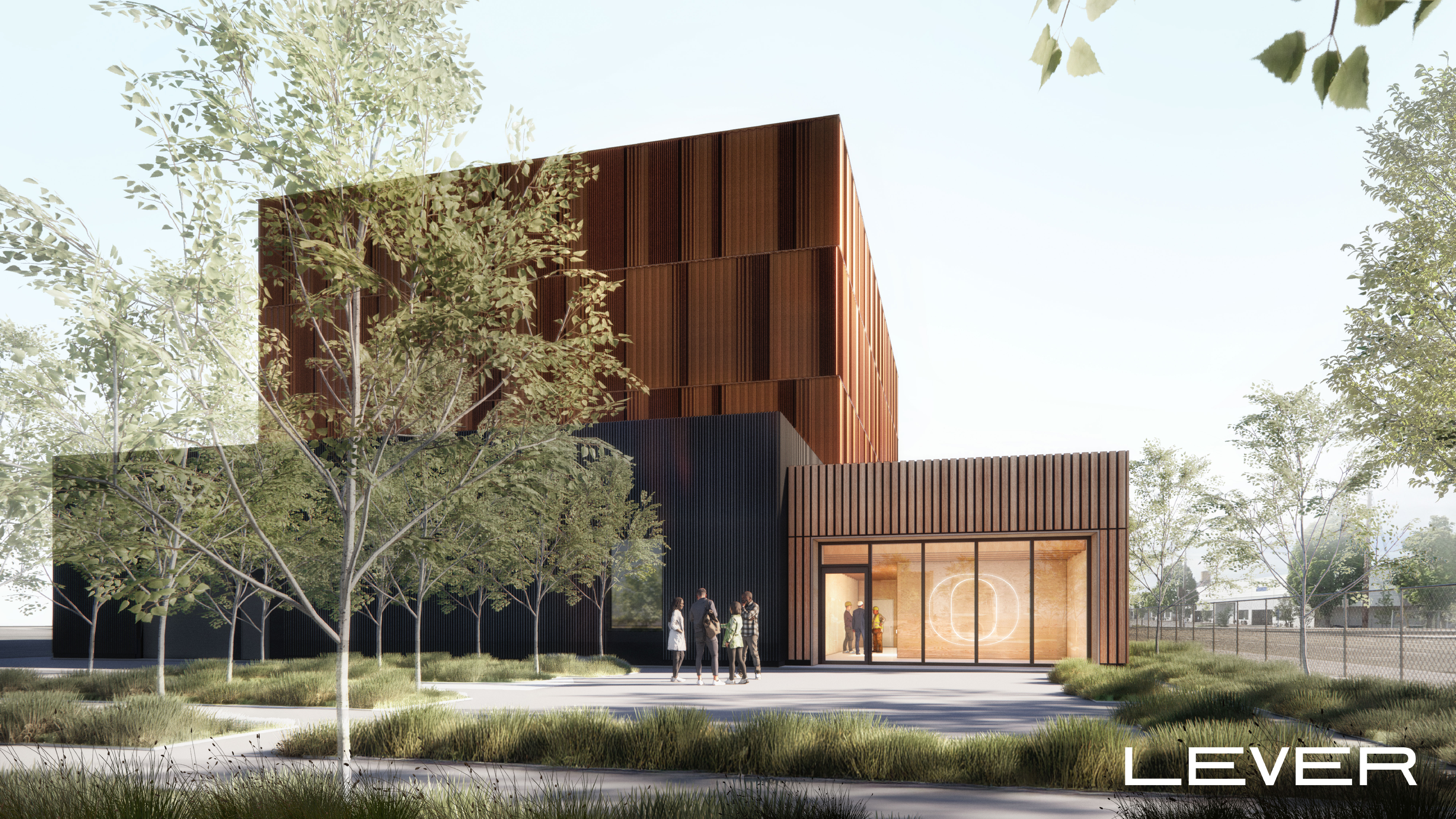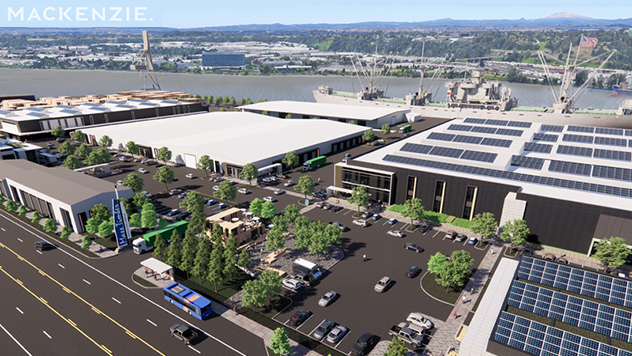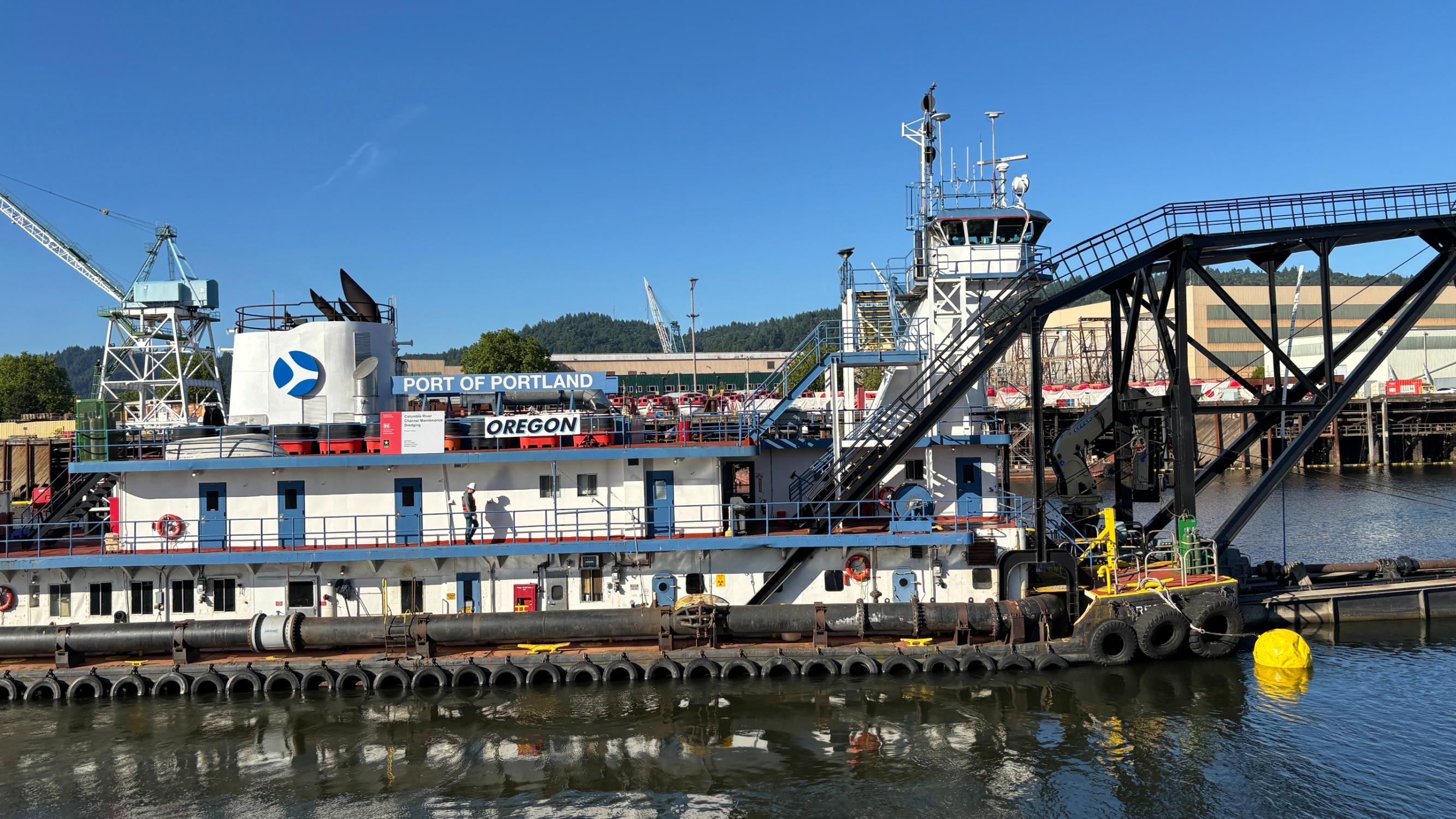Port approves UO acoustic research laboratory at the Mass Timber and Housing Innovation Campus at Terminal 2

Today, the Port of Portland approved a lease for the University of Oregon’s acoustic research laboratory planned at the Mass Timber and Housing Innovation Campus at Terminal 2.
The Oregon Acoustic Research Laboratory is the research and development anchor tenant planned for the campus, where the Port is transforming a former marine terminal in Portland’s Northwest industrial area into a manufacturing hub to support Oregon’s growing mass timber industry, create new jobs and address the region’s housing shortage.
“The Mass Timber and Housing Innovation Campus brings together leaders from all sectors to transform and grow Oregon industries. Together we are committed to creating good jobs, promoting sustainable forestry practices and supplying housing that’s desperately needed in our region,” said Kimberly Branam, Port of Portland Chief Trade and Economic Development Officer. “UO's leadership in acoustics testing and on-site presence will be key to the manufacturing hub's success.”
“The Oregon Acoustic Research Laboratory, the first of its kind in North America, as well as the new home for the Energy Studies in Building Laboratory, will be able to perform high-performance and high-throughput testing for sound-dampening products and construction methods, primarily targeting the reduction of sound transmission between multistory, multifamily housing units,” said Anshuman "AR" Razdan, University of Oregon Vice President for Research and Innovation. “The lab will be designed for the needs of both university researchers and private-sector testing.”
The University of Oregon’s Oregon Acoustic Research Laboratory (OARL) will be a state-of-the-art facility for conducting acoustics tests of mass-timber floor-ceiling assemblies to support the expansion of the mass-timber industry. Currently, there is a lack of facilities capable of performing this testing, and OARL will provide certified acoustic test results needed for code compliance to increase utilization of mass-timber assemblies in low-, mid- and high-rise housing, as well as commercial buildings.
The new lab is expected to undergo design and permitting in 2025, followed by construction in 2026, with building completion in 2027.
The Port and UO are members of the Oregon Mass Timber Coalition (OMTC), which in 2022 received a $41.4 million grant from the U.S. Economic Development Administration’s Build Back Better Regional Challenge to develop a comprehensive strategy for expanding the use of mass timber in the housing market. The grant included $10 million for the Port toward campus infrastructure development, and $14.6 million toward the development of UO’s acoustics research lab, along with OMTC projects in other areas of the state.
Along with the OMTC grant, the Port received $4 million in federal Housing and Urban Development funding in 2024 and $5 million from the Oregon Legislature in 2023 toward campus development.
In addition to approving the UO lease on Wednesday, the Port Commission approved an agreement with Zaugg Timber Solutions (ZTS), the Oregon-based arm of Zaugg, a third-generation, family-owned Swiss company with extensive experience in timber engineering, manufacturing and construction.
ZTS will open an interim manufacturing facility in a warehouse previously renovated by modomi – paving the way for ZTS to partner on a new mass timber modular factory, which will be the centerpiece of the Mass Timber and Housing Innovation Campus. The Port expects a long-term lease for the permanent facility to be ready for approval in spring 2025.
About the Mass Timber and Housing Innovation Campus at Terminal 2 (MTHIC@T2):
With our three airports, four marine terminals, and five business parks, the Port of Portland is an economic engine for transforming the region into a place where everyone is welcome, empowered, and connected to the opportunity to find a good job or grow their business.
The revitalization of Terminal 2 as an innovation campus is a way to bring the Port’s mission to life by creating powerful opportunities for working Oregonians and small business owners, and revving Oregon’s economy – while also addressing the region’s housing shortage.
When complete, the 39-acre Mass Timber and Housing Innovation Campus (MTHIC) will include a new factory for building modular housing and other mass timber structures, research and development of new products and technologies, workforce training, and space to help small businesses scale and new companies get off the ground. It will also be the new home of the University of Oregon’s Energy Studies in Building Laboratory.
Soil stabilization and critical infrastructure improvements will take place over the next couple of years, with housing production expected to begin on-site in early 2026, and with Phase 1 of campus development completed and fully operational in 2028. Phase 1 includes upriver soil stabilization, utility extensions, pavement improvements, campus-wide frontage improvements and establishment of anchor tenants.
The Port continues seeking interested partners and leasing property to organizations in related industries as the site develops. For more information, visit http://portofportland.com/masstimber.





